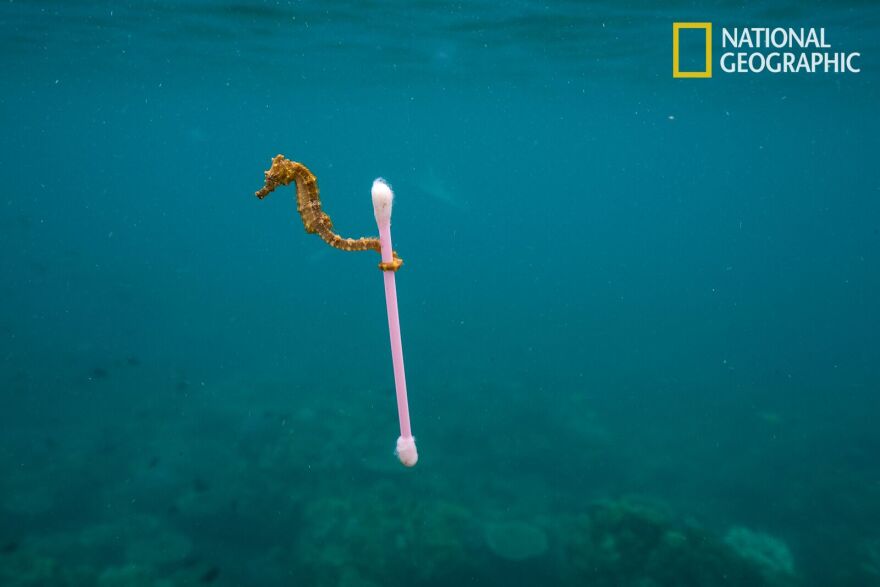Plastic is cheap, easy to manufacture and endlessly flexible. Over the last 70 years plastic has completely transformed the way we live. This innovation has created a global pollution crisis that threatens humans and wildlife, from the smallest of plankton to blue whales, with more than 18 billion pounds of plastic waste flowing into oceans every year.
On this hour of Talk of Iowa, host Charity Nebbe talks with the co-leaders of National Geographic's "Source to Sea" plastics initiative, environmental engineer Jenna Jambeck, and marine biologist Heather Koldeway about the causes of this crisis, and steps we can take to reduce plastic pollution at home and around the world.
Monumental change is needed to reduce the impact of plastic on our planet's waterways, but Jambeck and Koldeway say small, everyday lifestyle advancements can help you do your part to reduce single use plastic waste.
Quit single use plastics whenever possible
Making a change to a refillable water bottle or a reusable bag at the grocery store may seem like a small step, but compounded over time, these small steps can have a big impact.
“Every single adult in the UK, and it's a similar figure in the United States, uses between 175 and 200 single use plastic water bottles every year. So that means if you switch to a refillable bottle, very quickly, you make a change,” says Koldeway. “You’ve reduced the number in the system by 200 just yourself, and if you start making that change across your family, or your friends, or in your workplace, that's a really big cumulative number.”
Work with your local government to create change across your community
Looking at opportunities for greener living can start with the infrastructure and businesses that make your hometown a unique place to live. Are there accessible places for you to refill a water bottle? Are there incentives to recycle in public places? Consider discussing sustainability-minded initiatives with your local community.
Support green businesses and brands
Being an environmentally conscious customer can help encourage businesses from your local mom and pop store to big corporate operations to change the way they operate, like switching to greener packaging and using recycled plastics.
“I think we are seeing a lot of businesses now coming on board to change, whether that’s looking at better recapturing for recycling, moving towards more recycled content, or reducing the amount of plastics in their product.’ says Koldeway.
Reduce the amount of disposable plastic you purchase
Recycling plastics is great, but reducing the amount of products we purchase that use plastics is an effective way to stop plastic pollution before it starts.
“It takes less energy and effort in terms of not producing that waste in the first place" Says Jambeck. "It's better for our environment to not have that waste to manage at all.”
Last chance capture
If you see waste or litter in our environment, just picking it up can can make a huge difference, even if it's just collecting trash along a local highway. Last chance capture is seen as the ‘last chance’ that mismanaged waste has before making it into a local waterway or environmentally sensitive area.
Do something
Actively reducing plastic waste can seem like an overwhelming task, so start by making small changes.
“Just trying and recognizing that you won't be perfect straight away, but every single piece of plastic we take out of the system is really making a difference.” Says Koldeway “... if everybody just took one piece or made one change, were talking about a phenomenal impact just coming from Iowa.”



